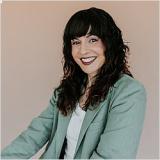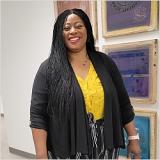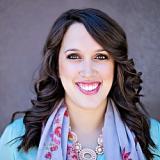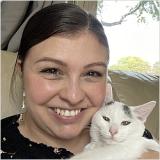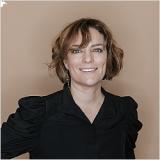Find a Therapist in Phoenix, AZ
| Prev | Next |
Not finding the right therapist? Search for therapists in Scottsdale, Tempe, or Mesa to expand your search.
Find a Therapist in Phoenix, AZ
Living in Phoenix offers many advantages, from year-round sunshine to a vibrant cultural scene. However, the desert city's rapid growth, intense summer heat, and fast-paced lifestyle can contribute to unique mental health challenges for residents across the Valley.
Whether you're navigating career transitions in Phoenix's booming tech sector, managing family stress in growing neighborhoods like Ahwatukee or Desert Ridge, or coping with seasonal adjustment during the intense summer months, professional support can make a meaningful difference.
Since 2007, GoodTherapy has been dedicated to connecting people with ethical, compassionate therapists who understand that all individuals are capable of change and deserve dignity and respect. Our Phoenix-area directory features licensed professionals committed to eliminating stigma and providing accessible mental health care.
Mental Health Support in Phoenix
Phoenix residents commonly seek therapy for anxiety, depression, relationship challenges, and work-life balance issues. The city's rapid growth and diverse population create both opportunities and stressors that can impact mental well-being.
Local factors like extreme heat during summer months, monsoon-related weather anxiety, and the challenges of building community in a transient city can influence mental health needs. Many Phoenix therapists understand these regional considerations and incorporate them into culturally sensitive treatment approaches.
Therapy Approaches Available in Phoenix
Phoenix therapists utilize evidence-based approaches tailored to individual needs and preferences. Our directory helps you locate mental health professionals who specialize in various therapeutic modalities.
Cognitive Behavioral Therapy (CBT) helps identify and change negative thought patterns, particularly effective for anxiety and depression common among Phoenix professionals managing high-stress careers.
Solution-Focused therapy emphasizes building on existing strengths and resources, ideal for individuals navigating life transitions in Phoenix's dynamic environment.
Dialectical Behavior Therapy (DBT) teaches emotional regulation skills, valuable for managing stress related to extreme weather, traffic, or rapid city changes.
Psychodynamic and Interpersonal therapy explore relationship patterns and unconscious influences, helping Phoenix residents build deeper connections in a sometimes transient community.
Specialized Services
Many Phoenix therapists offer specialized services including couples counseling for relationship challenges, family therapy for multigenerational households, and trauma therapy for those affected by accidents or natural disasters common in the desert Southwest.
Finding Your Right Therapeutic Match
GoodTherapy's comprehensive directory makes it easy to find therapists who understand Phoenix's unique landscape and challenges. You can search by specialty, insurance accepted, and specific approaches to find the right fit for your needs.
What to Consider in Your Search
Consider factors like location convenience during Phoenix's traffic-heavy commute times, therapists who understand desert living challenges, and professionals experienced with your specific concerns. Getting therapy help starts with identifying what matters most to you in therapeutic support.
Many Phoenix-area therapists offer flexible scheduling to accommodate work demands and various ways to receive therapy, including in-person and online options.
Making Therapy Affordable
Cost concerns shouldn't prevent you from accessing quality mental health care in Phoenix. Many therapists offer sliding-scale fees, accept insurance, or provide payment plans to make therapy accessible regardless of your financial situation.
Phoenix residents can also explore low-cost therapy options through community mental health centers, university training clinics, and group therapy settings that provide quality care at reduced rates.
Expanding Your Search
If you're having difficulty finding the right therapist in Phoenix, consider expanding your search to nearby communities. The greater Phoenix metropolitan area offers additional options while maintaining reasonable commute times.
Taking the First Step
Seeking therapy demonstrates strength and self-awareness. Phoenix's mental health community is committed to providing compassionate, professional support for whatever challenges you're facing.
Ready to begin your journey toward better mental health? Discover how therapy helps and start exploring Phoenix therapists who can support your unique path to wellness. Your first step toward positive change is just a search away.
Related Resources
- Locate mental health professionals
- Ways to receive therapy
- Get therapy help
- Low-cost therapy options
- How therapy helps
Find Therapists in Nearby Cities
Frequently Asked Questions
How do I find a therapist near me in Phoenix, AZ?
Use GoodTherapy's directory to search for licensed therapists in Phoenix by specialty, insurance accepted, and location. You can filter results based on your specific needs, whether you're looking for anxiety treatment, couples counseling, or family therapy services.
What types of therapy are offered in Phoenix?
Phoenix therapists offer various evidence-based approaches including Cognitive Behavioral Therapy (CBT), Solution-Focused therapy, Dialectical Behavior Therapy (DBT), Psychodynamic therapy, and Interpersonal therapy. Many also provide specialized services like EMDR, trauma therapy, and group counseling.
How much does therapy cost in Phoenix?
Therapy costs in Phoenix vary depending on the therapist's experience and specialization. Many therapists accept insurance, offer sliding-scale fees, or provide payment plans. Contact potential therapists directly to discuss pricing options that fit your budget.
Can I find therapists who accept insurance in Phoenix?
Yes, many Phoenix therapists accept various insurance plans. When searching our directory, you can filter results by insurance accepted to find therapists who work with your specific coverage, making therapy more affordable and accessible.
What mental health issues do therapists in Phoenix commonly treat?
Phoenix therapists commonly address anxiety, depression, relationship challenges, work-life balance issues, trauma recovery, and stress management. Many also specialize in treating concerns related to life transitions, family conflicts, and adjustment difficulties in Arizona's unique desert environment.

